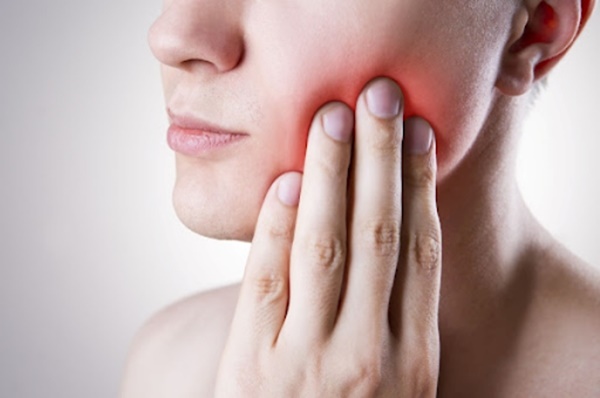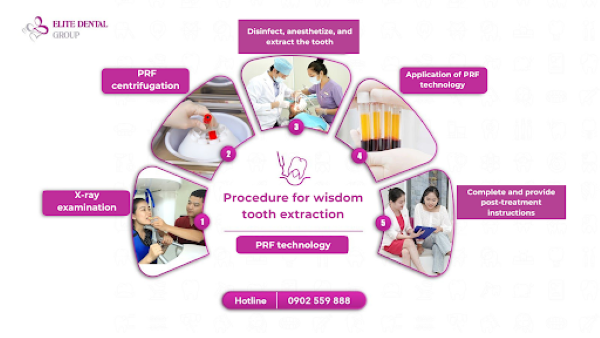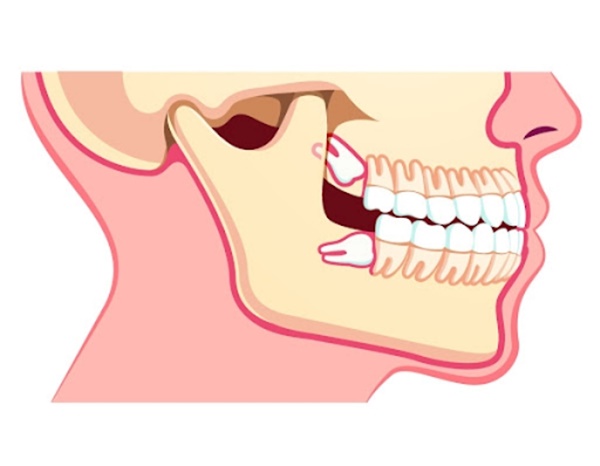Regular scaling combined with daily brushing effectively removes plaque buildup on teeth, resulting in fresher breath and reduced bad breath.

Book A Consultation

Scaling and polishing, along with sandblasting, are dental procedures that effectively clean your teeth. Scaling removes tartar, while sandblasting eliminates stubborn stains, restoring a brighter tooth surface. Let’s explore these general dental services with Elite Dental to maintain healthy oral care!
What Do Teeth Cleaning Include?
Tartar, also known as dental calculus, consists of long-standing dental plaque that has hardened due to calcium phosphate – a salt compound found in saliva. Initially, tartar appears ivory-colored, similar to tooth enamel. If not removed, it accumulates over time, becoming thicker and changing to brown or black, which can lead to gingivitis, periodontitis, and other dental issues.
Scaling and polishing are effective methods for cleaning teeth, including:
- Scaling: This procedure removes the hardened plaque (tartar) from teeth surfaces. It helps clean the tooth surface and reduces the risk of oral diseases such as bad breath, gingivitis, periodontitis, tooth decay, and even tooth loss.
- Polishing: After scaling, polishing is performed to smooth and shine the tooth surface. Dentists use specialized tools and polishing paste to remove any remaining small tartar particles, leaving the teeth clean and shiny.
If there are many stubborn stains on the teeth that scaling cannot completely remove, sandblasting is recommended. This modern technology effectively cleans these tough stains. Sandblasting is typically done after scaling, ensuring that the teeth are free from tartar and stubborn stains, resulting in smoother and brighter teeth.
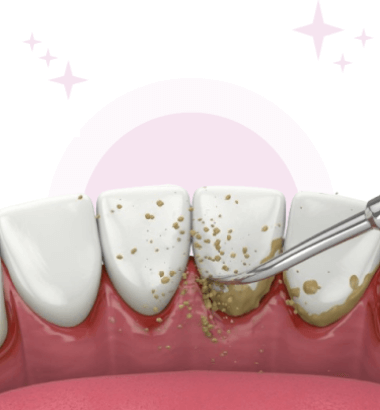
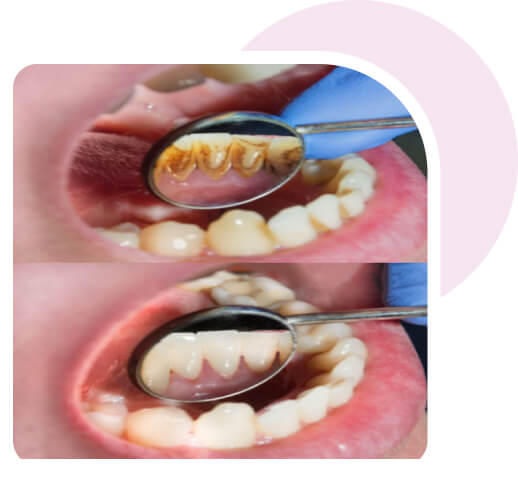
Candidates For Scaling, Polishing, and Sandblasting
General dental services such as scaling, polishing, and sandblasting are typically recommended for the following cases:
People with significant plaque buildup causing tooth discoloration.
Individuals with gingivitis, periodontitis, or bleeding gums.
Those experiencing tooth sensitivity or discomfort.
Individuals needing regular dental care every six months.
Especially those who do not have regular dental check-ups and frequently consume coffee, tea, or smoke, leading to substantial tartar and stains.
The frequency of scaling depends on oral health condition, dietary habits, and the thickness of the tartar layer. The recommended intervals are:
- For individuals with minimal tartar and no oral health issues: every 6 months.
- For those with significant tartar buildup or frequent coffee, tea, or tobacco use: every 3-4 months.

Benefits of Scaling and Polishing
Scaling and polishing offer numerous practical benefits for oral health, such as:
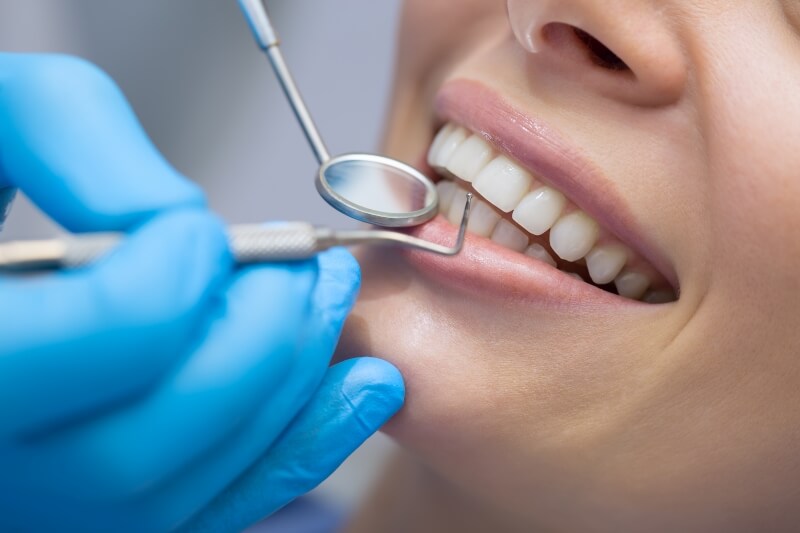
Removing tartar and stains, reducing bad breath
Preventing common dental issues
Removing tartar can help prevent common dental problems such as tooth decay, gingivitis, and bleeding gums. Through the process of scaling, dentists also inspect and identify any abnormal dental issues, allowing for timely treatment solutions.
Brighter and smoother teeth, no more discoloration
When plaque buildup and stains causing tooth discoloration are removed, it helps achieve a brighter, smoother tooth surface. Having clean and bright teeth boosts confidence in your smile.
Controlling and reducing the risk of health conditions
Bacteria from tartar can enter the bloodstream, increasing the risk of heart disease and stroke. Therefore, cleaning tartar is essential to protect overall health.
How Is The Dental Scaling And Polishing Procedure Performed?
The process of scaling and polishing is conducted quickly and involves the following steps:
Dental examination and consultation
Tartar removal (Scaling)
Tooth polishing
Final dental check-up

Step 1: Dental examination and consultation
The dentist examines the teeth, provides consultation, and takes intraoral photographs or X-rays to assess the tooth roots. Using small mirrors and probes, they check for signs of gum inflammation, the extent of tartar buildup, or other dental issues. If heavy tartar buildup is detected, the dentist may schedule the treatment in two appointments to ensure patient comfort and effective cleaning
Step 2: Tartar removal (Scaling)
The tartar removal process uses ultrasonic waves to gently vibrate and gradually loosen hardened tartar deposits without harming the gums. This method is generally painless; though some sensitive individuals or those with thick tartar may feel slight discomfort or sensitivity.
The dentist uses a smooth, rounded ultrasonic scaler tip to vibrate and break down tough tartar deposits, while a jet of water helps flush away the debris. After completing the tartar removal, it’s important to rinse with a specialized mouthwash provided by the dental clinic to help control gum inflammation.
Step 3: Tooth polishing
After tartar and plaque deposits have been removed, the dentist will proceed to clean and polish your teeth (both outer and inner surfaces). This process smooths the tooth surfaces, making it harder for plaque to adhere, and leaves your teeth brighter with a fresh, smooth feel.
In cases where there are still stubborn stains on the teeth after scaling, sandblasting should be performed. This technique involves using strong air pressure along with ultra-fine particles to thoroughly remove stubborn stains on the teeth without causing damage to the surrounding soft tissue. Once the teeth are completely cleaned, the dentist will proceed with tooth polishing.
Step 4: Final dental check-up
After scaling and polishing your teeth, you may take intraoral photographs for comparison and thorough examination.
The duration of scaling and polishing varies depending on the amount of tartar and stains present on the teeth. Typically, the procedure can take approximately 30 to 45 minutes to complete.
Elite Dental – Gentle, Pain-Free Teeth Scaling and Polishing

For many years, our general dental services, including scaling and polishing, have consistently received 5-star ratings from our customers for four reasons:
Highly skilled doctors who perform quickly and gently
Elite Dental boasts a team of proficient Dentists specialized in dental health, with extensive experience. The Dentists not only meticulously remove tartar but also effectively treat gum inflammation and gingivitis for customers.
Modern equipment for safe and effective cleaning
To ensure a gentle and effective scaling and polishing experience, Elite Dental employs state-of-the-art ultrasonic scaler tips and the Aquacare sandblasting machine, which gently treats tooth surfaces. Alongside dental treatments, Elite Dental also incorporates various other advanced equipment and machinery.
Medical standard procedures, adhering to sterility
The process of tartar removal, polishing, and sandblasting at Elite Dental adheres strictly to medical standards. Additionally, the clinic strictly follows international standards for sterilization and disinfection, ensuring maximum safety for customers.
Private treatment rooms for a comfortable experience
Elite Dental provides private treatment rooms to ensure privacy, complemented by relaxing music for a comfortable and pleasant experience for customers. Furthermore, the clinic offers WiFi access, allowing customers to conveniently browse news and check emails while waiting for their appointment.

How Much Are Dental Cleaning Services?
Depending on the extent of tartar buildup and stains, the dentist will recommend a suitable teeth cleaning method tailored to specific cost levels. Below is the pricing table for scaling, polishing, and sandblasting services at Elite Dental:
| SERVICE | PRICE (VND) | NOTE |
Teeth cleaning + polishing – Level 1 | 400.000 – 500.000 | 2 jaws |
| Teeth cleaning + polishing – Level 2 | 600.000 – 800.000 | 2 jaws |
Teeth cleaning + polishing – Level 3 | 800.000 – 1.000.000 | 2 jaws |
| Teeth cleaning + polishing – Level 4 | 1.000.000 – 1.200.000 | 2 jaws, 2 appointments |
| Teeth cleaning + polishing after braces | 1.000.000 – 1.200.000 | 2 jaws |
Stain removal – Level 1 | 500.000 – 1.000.000 | 2 jaws |
| Stain removal – Level 2 | 600.000 – 1.000.000 | 2 jaws |
Teeth sandblasting | 1.500.000 – 2.500.000 | 2 jaws |
Teeth sandblasting level 1 | 1.000.000 – 1.200.000 | |
Teeth sandblasting level 2 | 1.500.000 – 1.800.000 | |
Teeth sandblasting level 3 | 2.000.000 – 2.500.000 |
Cost of tartar removal, polishing, and sandblasting is transparently disclosed.
We commit to providing honest consultation tailored to the customer's dental condition.
Prices may vary depending on the specific condition of each patient and the chosen treatment method. Please contact Elite Dental for accurate consultation and pricing.

Experience
Teeth Cleaning
at Elite Dental
Teeth are free of plaque, whiter, and healthier
Things to Know When Scaling and Polishing Teeth
Here are some important notes before and after tartar removal and teeth polishing to ensure a safe and effective treatment experience:
Before Treatment
- Choose a reputable dental clinic with a team of highly skilled dentists experienced in dental care and treatment.
- Schedule a dental check-up to allow the dentist to assess the condition of tartar buildup and recommend appropriate cleaning solutions.
After Treatment
- Maintain a balanced diet and increase vitamins and minerals.
- Use dental floss and mouthwash as recommended by the dentist to protect your teeth after tartar removal.
- Use prescribed medications as directed by the dentist (if needed).
- Attend follow-up appointments as scheduled.
- Avoid consuming spicy, hot, excessively cold, deeply colored, or sugary foods.
- Limit alcohol, beer, and tobacco.
FAQ About Teeth Cleaning
Does tartar removal hurt?
Tartar removal and teeth polishing are procedures performed on the tooth surface without interfering with the gums or inner tooth structure, so they do not typically cause significant pain, especially when performed professionally. However, discomfort or slight numbness may occur due to:
- Excessive tartar buildup that has been present for a long time and tightly adheres to the gums, which may cause slight numbness in the first 1-2 days after tartar removal.
- Improper technique during tartar removal that could inadvertently cause minor damage to the gum tissue, resulting in discomfort or bleeding.
- Individuals with existing oral conditions such as gum inflammation, gingivitis, or swollen gums may experience more discomfort during tartar removal. You can discuss with your dentist about using local anesthesia if you are concerned about pain, especially if you have severe tartar buildup. Local anesthesia can help you feel comfortable and pain-free during the procedure, particularly if deep cleaning under the gums is needed.
Can you remove tartar from your teeth at home?
Tartar typically adheres tightly to the tooth surface, especially accumulating below the gumline. Therefore, it’s not advisable to remove tartar at home as it’s difficult to clean these deposits thoroughly and may cause damage to the gums.
Does tartar removal whiten teeth?
Tartar often causes teeth to appear discolored. After tartar removal, teeth return to their natural color. Tartar removal itself does not whiten or change the enamel color. If you want to whiten your teeth, you’ll need a teeth whitening procedure.
Can you clean porcelain teeth with tartar removal and polishing?
Even with porcelain teeth, regular tartar removal and polishing every 6 months are still necessary.
Can pregnant women get tartar removal?
Tartar removal is a simple procedure that doesn’t deeply impact gum tissue, so pregnant women can undergo it. However, for safety, it’s advisable for pregnant women to consult with their doctor before getting tartar removal.
Regular tartar removal, polishing, and sandblasting for stubborn deposits are essential steps in dental care that not only help maintain oral hygiene and prevent common dental problems but also ensure a confident smile and fresh breath. For detailed advice on this service, please schedule an appointment with Elite Dental!








